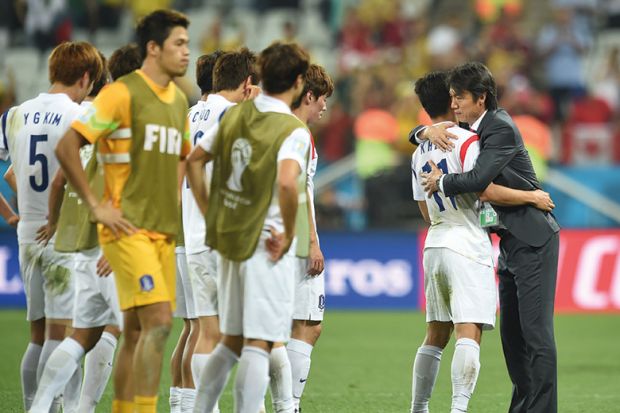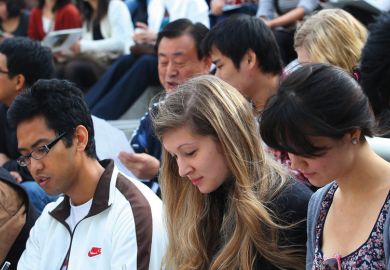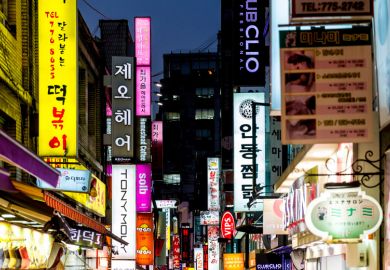There is rampant alumni network favouritism in South Korean research, according to a new study that lifts the lid on the importance of connections in the nation’s academia.
The findings may add to concerns that foreign academics in South Korea, welcomed by Seoul as it attempts to make its universities more international, face additional barriers compared with locals when trying to progress through the country’s universities.
Research proposal evaluators favoured alumni from their own university when deciding who should receive funding from the National Research Foundation of Korea, the analysis found.
The study, “Impact of Alumni Connections on Peer Review Ratings and Selection Success Rate in National Research”, published in Science, Technology and Human Values, looked at close to 8,500 proposals in natural science and engineering made between 2007 and 2011.
If scientists had no fellow alumni assessing their ideas, just 28 per cent got funding, but this success rate increased the more alumni were on the panel. When all three evaluators were from the same university as the applicant, the success rate shot up to almost four in 10.
Although gender was not the focus of the analysis, it also found that male researchers were funded at a “significantly higher rate” than women.
Alumni favouritism was not widely acknowledged as a problem in Korean academia, co-author Soogwan Doh, a researcher at the Catholic University of Daegu, told Times Higher Education. He said the paper empirically proved the problem existed “for the first time”.
The paper delves into the tight alumni networks that are crucial in Korean society. “Alumni networks are very important in the Korean business world and labour market,” it explains. “Many alumni form an active and powerful community that fosters lifelong and personal supports.”
Korean professionals quickly establish a social hierarchy by asking each other’s age and alma mater when they first meet, it adds.
“Hence, within academic circles, the discipline, age, and school information of almost all members are known,” it continues. As they network, researchers form powerful alumni networks with others in their own field, as well as even stronger relationships between senior and junior academics, the paper adds.
Concerns about the importance of alumni networks in Korean academia have been raised before. A series of interviews with foreign faculty at Yonsei University in Seoul released last year revealed that they felt they would never be able to break through a “glass ceiling” of promotion because they lacked connections from previous study at the institution. Yonsei’s management has hit back, however, citing a growing number of international faculty achieving tenure.
Dealing with alumni bias is “necessary but challenging”, this latest paper concludes. One way to do it would be to explicitly state alumni conflicts of interest – with the conflicted assessor leaving the room while others discuss a funding decision.
Register to continue
Why register?
- Registration is free and only takes a moment
- Once registered, you can read 3 articles a month
- Sign up for our newsletter
Subscribe
Or subscribe for unlimited access to:
- Unlimited access to news, views, insights & reviews
- Digital editions
- Digital access to THE’s university and college rankings analysis
Already registered or a current subscriber?






